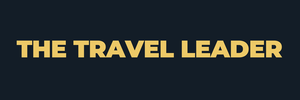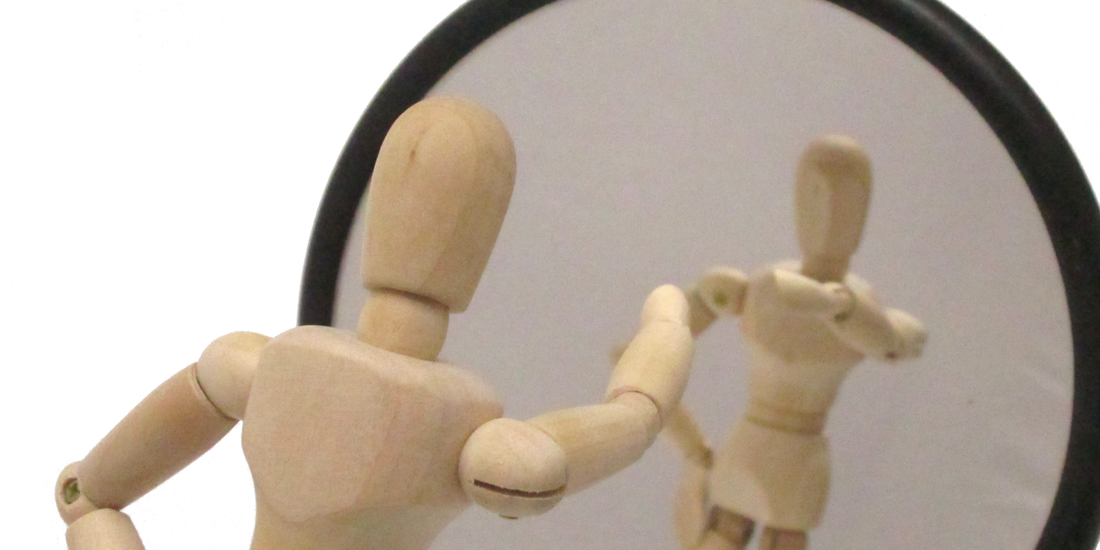|
I always thought I was pretty good at asking for and receiving feedback. However, a recent experience made me pause for reflection, and when I took a step back to observe my behavior, I actually laughed at myself when I realized the significant lesson I could learn. I gave a document to a colleague to provide feedback. When she gave me her input, she noted a minor wording change that had been made that had potentially big implications in perception and buy-in for our project. It wasn’t that I didn’t agree with her opinion on the change that was needed. I had noticed the change that was made by someone else involved in the project but in the haste of things I moved on and didn’t take action. I was also very proud of the work I had done and had spent specific time ensuring that the tone and messaging was appropriate. So when feedback was made on that theme, I wasn’t thrilled about it. Asking for and receiving feedback is important for two critical reasons. First, feedback allows us to learn and grow. We cannot improve our performance if we don’t know where improvements are needed. Second, asking for and receiving feedback well, demonstrates and models to others that feedback is a normal and necessary part of personal and professional development and helps to create a culture of continuous improvement. Knowing the importance of receiving feedback, here are some lessons and guidelines for becoming a master in this skill set.
Feedback in all of its forms is actually a true gift. It takes a lot of courage for the person sitting across from you to give that feedback directly and there are more times than not in your career where colleagues and leaders will actually avoid it, especially as you grow as you become a more senior leader. Having a growth mindset around feedback- the understanding that your abilities and intelligence can be developed through hard work and perseverance - will help you separate the feedback from a tendency to take things personally and will only help you to grow and develop beyond your expectations.
Be 100% accountable When I received the feedback on my project, I initially could only see that the feedback was not mine to receive. In other words, I became defensive and was quick to assign responsibility to someone else. I was so convinced in my viewpoint, that I made additional efforts to reason and explain why the mistake had happened. And then, in a light bulb moment, I saw what I was missing. There is a difference between taking responsibility for the feedback and being accountable for the feedback. Taking responsibility is about owning mistakes or need for improvement for your assigned and executed tasks. Being accountable is about owning the outcomes and results of your role. I knew my truth and didn’t need to internalize responsibility for the changed document. However, the much better response would have been to thank the feedback giver for their input and work to make it right without excuses. I was the “leader” of this project, and it was my job to be 100% accountable. Trust your judgment Feedback is a prominent theme in my coaching work. I gave a recent leadership training for a management team at a hotel in which creating a cultural of feedback was a central part. I also hear it in my one on one coaching sessions with clients. In one example, a client who is very genuine and skilled in this area, received feedback from a colleague that didn’t fully resonate with her. There are times when feedback may not be 100% true. Feedback givers come with their own personal perspectives and viewpoints which can cloud the ability to give accurate feedback. In the worst cases, the feedback giver could be projecting their own deficiencies and insecurities on to you. Remember to trust your own judgment and get multiple perspectives, while also realizing that there is always some truth to feedback. My client also said very wisely in this case that perception matters regardless of the level of absolute truth. Take action Finally, what’s the point of getting feedback if you don’t take action on it? The true test of your ability to receive feedback is whether or not you have learned from it and taken action to improve upon it. The journey through receiving and acting on feedback is an intricate dance of humility, growth, and resilience. My recent reflection illuminated not just a blind spot in my own approach to feedback but also a universal truth about human nature and the continuous quest for improvement. The realization that feedback is a gift, one that requires an open heart and mind to fully appreciate and learn from, has been transformative. Let us carry the lessons learned with grace, understanding that each piece of feedback, whether easy or difficult to digest, is a stepping stone towards our better selves. In embracing feedback with a genuine desire for growth and a commitment to accountability, we not only enhance our personal and professional development but also contribute to a culture that values and promotes continuous learning. Let's cherish the feedback we receive, trust our judgment, and take decisive action to mold a future marked by excellence and enduring success.
2 Comments
Earlier this year, I found myself not as the boss, but working for someone else on a freelance/consulting basis—a situation I hadn’t been in for over 12 years. I was working with other consultants on a project, setting up a new initiative and creating new processes and deliverables. As I collaborated with other partners, I started to notice something about myself. Once we were given our responsibilities and goals, I was ready to execute. I rarely waited for products of the project to be reviewed before they were launched. I also became frustrated if the process became bogged down in decision making. I am sharing this experience not to promote a particular behavior in consultancy; in fact, this trait could potentially make me a less than ideal consultant! However, the capacity to take initiative and proceed without needing approval, even if it might unsettle some, I believe is a unique leadership quality of business owners and entrepreneurs. One that I believe could be vital for professionals aspiring to climb the career ladder and take on more significant leadership roles and responsibilities. Being on the other side of the desk, so to speak, offered me the unique opportunity to see a new perspective on leadership. It led me to ponder upon other possible traits that differentiate entrepreneurial leaders. What unique qualities and behaviors set them apart, and how can these traits aid individuals in achieving unparalleled leadership success within their organizations? I quickly realized I was not treading on uncharted territory. My research led me to some invaluable resources that delve into the realm of entrepreneurial leadership such as the work of Joel Peterson: Entrepreneurial Leadership: The Art of Launching New Ventures, Inspiring Others and Running Stuff. Drawing from my own journey as an entrepreneur, I've identified specific behaviors and actions that epitomize entrepreneurial leadership. Entrepreneurial leaders:
I look forward to exploring these leadership behaviors more in my writing, interviews on The Travel Leader and with my clients. In the meantime, check out these resources: Video with Joel Peterson Are you an Entrepreneurial Leader? Article 7 Characteristics of the Best Entrepreneurial Leaders Welcome to the age of Artificial Intelligence (AI)! It’s a thrilling time in the hospitality and travel sector, with AI reshaping the way we experience the world. For the leaders steering the ships in this vibrant industry, it’s time to embrace a fresh set of skills and mindsets. Let’s dive into the essential leadership competencies like curiosity, adaptability, growth mindset, creativity, and empathy, and explore why they’re the keys to success in our AI-driven world.
1. Curiosity: Curiosity isn’t just about asking questions; it’s about asking the right ones. It’s the spark that ignites innovation and exploration of AI’s endless possibilities. Imagine a hotel leader with a curious streak, delving into AI to discover chatbots that can make guest interactions smoother or data analytics that can fine-tune pricing strategies, giving their brand a unique sparkle in the market. 2. Adaptability: In the ever-evolving landscape of AI, being adaptable is like having a superpower. It’s about embracing the new and tweaking strategies to make the most out of the AI tools at our disposal. Take the airline industry, where adaptable minds are using AI to craft flight paths that save fuel and enhance passenger experiences, making the journey as enjoyable as the destination. 3. Growth Mindset: Having a growth mindset is like having a love affair with learning. It turns challenges into stepping stones, fostering a culture where exploring new AI applications is a thrilling adventure. A travel agency led by someone with a growth mindset might play around with AI to whip up personalized travel plans, refining their approach based on what they learn from customer feedback. 4. Creativity: Creativity is the magic wand that turns ordinary into extraordinary. It’s crucial for dreaming up novel ways to apply AI that captivate customers’ imaginations. A creative leader might envision an AI-driven concierge service that not only answers guest queries but also recommends experiences based on their preferences, adding a sprinkle of wonder to their stay. 5. Empathy: In a world buzzing with tech, empathy is the human touch that makes all the difference. It’s about balancing AI’s efficiency with a warm, human connection. Think of a hotel where leadership values empathy; they might use AI to speed up check-ins but also encourage staff to spend the extra time truly connecting with guests, creating unforgettable moments. Why These Competencies Matter in the AI Era Crafting Memorable Experiences AI opens up a treasure trove of opportunities to tailor customer experiences. Leaders blending curiosity, adaptability, and empathy can implement AI solutions that resonate with guests on a personal level, ensuring every interaction is a memorable one. Innovating with a Twist Leaders armed with creativity and a growth mindset are the architects of innovation, designing unique AI applications that set their organizations apart. By nurturing a playful and experimental culture, they’re not just keeping up with the competition; they’re redefining the game. Building a Better World Leaders who are adaptable and empathetic are the builders of a more sustainable and ethical future. They’re using AI to make smarter, eco-friendly decisions and ensuring that technology is used with respect and care for customer privacy and data. Wrapping It Up In the exhilarating world of AI, leaders in hospitality and travel need to be curious explorers, adaptable innovators, creative thinkers, lifelong learners, and empathetic connectors. These are the ingredients for leveraging AI in ways that enchant customers and pave the way for a future where technology and humanity dance together in harmony. Whether it’s a hotel creating magical guest experiences with AI or an airline finding smarter routes through the skies, the future is a canvas waiting to be painted by those ready to lead with creativity, curiosity, empathy, adaptability, and a growth mindset. So, let’s embrace these competencies and ride the AI wave to a future filled with wonder and possibilities! The Power Humility
As a hospitality leader, there has been more than one occasion when I don’t see our business achieving a specific outcome, and I think: If only employee x would do y, we would get the result we want. And then I ask, why isn’t employee x doing it!? It’s easy to jump down the rabbit hole and analyze all the reasons why said employee is behaving the way they are. In reality, there’s a big chance that if I looked myself in the mirror, I would get the answer I’m looking for. Many times, undesirable outcomes result from undesirable behaviors that stem from less than stellar leadership practices. This can stem from anything like poor communication, lack of setting expectations or systemic cultural problems in an organization. And most of these can be attributed to the leaders at the very top. Ask any leader how strong their competencies are in any of these areas, and more than likely they will rate themselves better than someone looking from the outside in. For his book “The Future Leader”, Jacob Morgan surveyed hundreds of employees and leaders about different leadership mindsets and skills. For every one, leaders scored themselves as more proficient than their direct reports. This phenomena is referred to as the Dunning-Kruger effect by social scientists: “a cognitive bias whereby people with low ability, expertise, or experience regarding a certain type of task or area of knowledge tend to overestimate their ability or knowledge.” Adam Grant talks about this in his book “Think Again”. Feeling deflated? Don’t worry! We are all guilty of it. There’s an antidote for it as well – the metaphorical mirror, or in other words, humility. Jacob Morgan defines humility as “the willingness to obtain accurate self-knowledge. Keeping an open mind and being willing to constantly learn and improve”. Humility is a powerful mindset and practice. First, it paves the way for all other leadership competencies. Humility is first the belief that we are all fallible human beings with the potential for improvement. It is a “modest self-portrayal”. Humility also includes self-awareness – the ability to look in-wards, self-reflect and accurately assess your strengths and weaknesses. Humility is so powerful that Jim Collins found in his research for “Good to Great” that it was the most important factor that separates truly great companies from all the rest. So where do you begin to practice humility? Break out the mirror and ask yourselves these questions:
Start with asking yourself those questions and the sky is the limit for your own leadership growth and the organization for which you work. Communication has got to be one of the most emphasized and underdeveloped work and leadership skills. How many times have I heard or said, “you need to communicate better”? If its so important, why do we struggle to get it right?
Mid-way through my career, communicating effectively as a leader, is a skill I work on daily. I spend a lot of effort un-learning what I thought good communication to be usually through trial and lots of errors. I’ve written emails that I thought were perfectly fine but received angry responses in return. I’ve had conversations with employees and the employee quit by the end of it. I’ve posted things social media that didn’t sit well with our audience. By definition, communication is simply the exchange of information between individuals. Effective communication, however, is a much more complicated phenomena and fraught with land mines where it can blow up in your face. In my experience, communication has gone wrong for me because I believed that the goal was to impart information to another person and make sure they understand what ever that information may be. When in fact, there is really just one goal, for every kind of communication: to build trust. Who are you most likely to take advice from? – A friend you trust. What advertisements convince you to buy a product or service? – Those that come from a company or brand you trust. When do you best receive feedback in your work? – When it comes from a manager you trust. Effective communication starts with a genuine mindset shift that when we are exchanging information, we are also open and genuinely receiving what is coming from the other. When the other person, or your target audience believes in our authenticity, trust begins to form. There are practices that support this trust building.
|
AuthorRachel Vandenberg is a leadership coach living in Stowe, Vermont with her husband and three children. Rachel also owns and operates a hotel and attractions property with her family. She sits on the board of the local tourism association and also created a leadership retreat for women leaders in travel. Archives
July 2024
Categories
All
|






 RSS Feed
RSS Feed
